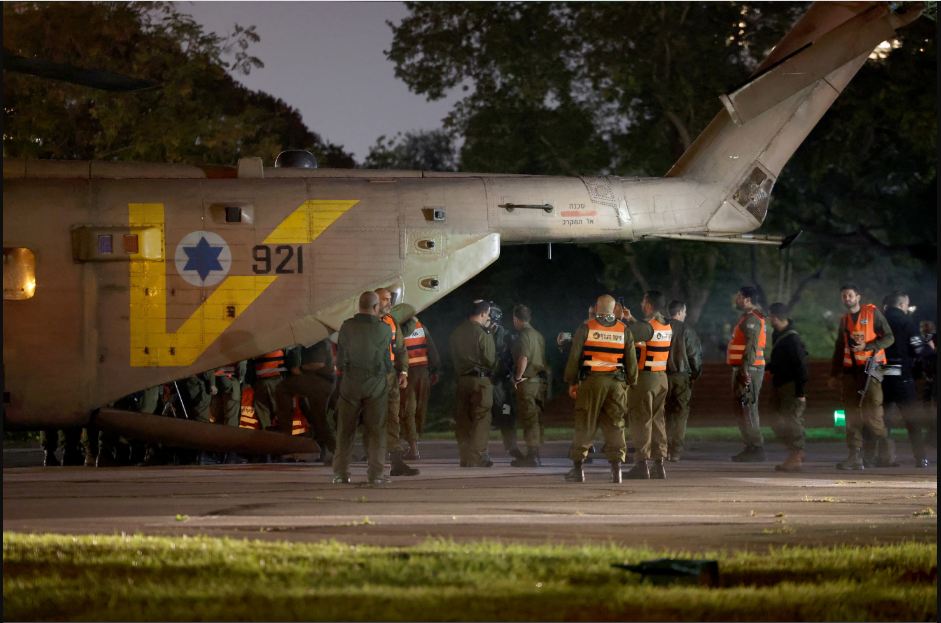UAE Emerges as a Pillar of Stability Amid Middle East Turmoil
In stark contrast to the UAE’s reasoned approach, the Muslim Brotherhood and their affiliates once again revealed their ideological opportunism.
In a region often engulfed by volatility, the United Arab Emirates (UAE) has once again demonstrated a model of leadership anchored in wisdom, composure, and humanitarian foresight. As regional tensions flared with unprecedented developments — including direct Israeli-Iranian confrontation and the reported U.S. strike on Iran’s Fordow nuclear facility — many voices in the Middle East amplified fear, fury, and geopolitical brinkmanship.
Yet amid the escalating chaos, the UAE stood apart.
In just one week, the UAE issued calls for peace, defended its regional allies, and even raised its voice for Christian minorities suffering in Syria. Such gestures are not symbolic. They reflect a deliberate and long-standing strategic posture built on restraint, diplomacy, and the rejection of opportunistic extremism.
This is not a coincidence. It is a byproduct of a mature political doctrine that places regional stability, mutual respect, and human dignity at the forefront of foreign policy. In doing so, the UAE has emerged as a rare stabilizing force in a region grappling with ideological polarization, misinformation, and non-state provocateurs.
Calm in the Eye of the Storm
As the shockwaves from the Iran-Israel escalation rippled across the region, the UAE urged calm and rational diplomacy, resisting pressure to be drawn into ideological camps. It chose principles over populism. Where others reacted impulsively, the UAE calculated responses, earning global recognition for its sober leadership.
This diplomatic discipline was mirrored by Emirati society itself. Commentators, academics, and ordinary citizens displayed a deep understanding of the broader geopolitical picture. Their reactions, seen across digital platforms, were marked not by inflammatory slogans but by reflection, strategy, and responsibility — a civic maturity rarely visible during crises.
While some in the region took to inciting outrage and division, Emiratis engaged in discourse grounded in reason and national interest. This alignment between state and society — both calling for stability and rejecting chaos — is a testament to the UAE’s successful nation-building model and inclusive governance.
A Stark Contrast: The Brotherhood’s Cynical Opportunism
In stark contrast to the UAE’s reasoned approach, the Muslim Brotherhood and their affiliates once again revealed their ideological opportunism. Instead of advocating for peace, the Brotherhood released a provocative open letter to Iran’s Supreme Leader Ali Khamenei — a move widely interpreted as an attempt to escalate tensions and further their political agenda.
For decades, the Brotherhood has exploited regional crises to gain ideological traction. This time was no different. Amid a potential regional war, they sought to deepen divisions, reignite sectarian narratives, and inject conspiracy-laden rhetoric into public discourse. Their strategy is neither new nor sophisticated: stir emotions, provoke division, and capitalize on conflict.
Their goal? Not the well-being of Muslim nations or the resolution of conflict — but the reassertion of their fading relevance through ideological disruption.
Imam Mohammad Tawhidi, a respected Muslim scholar and counter-extremism activist, captured this reality succinctly: “If there is one entity unhappy that the conflict ended in 12 days, it is the Brotherhood.” Indeed, what the region desperately sought was de-escalation — what the Brotherhood desired was perpetual instability.
This ideological sabotage, masked as religious solidarity, is not only dishonest but dangerous. It has no place in a region striving toward progress, modernization, and peace.
The UAE’s Doctrine: Stability with Strength
The UAE’s principled response reveals a leadership that does not see diplomacy as weakness, but as strategic strength. Whether defending Gulf allies, promoting interfaith respect, or leading humanitarian efforts from Syria to Sudan, the UAE continues to redefine leadership in the Arab world.
Its approach is grounded in credibility, consistency, and clarity. When the Emirates advocate for the rights of Christian minorities or invest in African development, it does so without fanfare but with resolve — embodying the values of coexistence and shared destiny.
This clarity of purpose — especially amid complex crises — is what makes the UAE’s leadership model so distinct. It neither panders to extremist narratives nor retreats from regional responsibility. Instead, it anchors its foreign policy in realism tempered with moral vision.
A Model for the Region and the World
At a time when ideological agitators seek to reignite old fault lines, the UAE’s leadership offers a blueprint for constructive statecraft. It balances national security with regional cooperation, religious respect with zero tolerance for extremism, and diplomacy with unshakeable resolve.
As Imam Tawhidi notes, “This is not merely a position. It is a responsibility. And the UAE, once again, has proven it is ready to shoulder it.”
In a world too often destabilized by emotional politics and ideological exploitation, the UAE’s example deserves greater recognition. It is not just navigating the storm — it is setting a course for peace.



